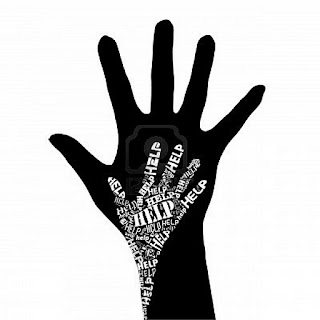- I relied on a 16-week training plan to get my non-athlete physique in shape.
- If it were not for the company of Perry Noble, Steven Furtick, Rick Atchley, Matt Chandler, and Bob Babbit I would not have survived the 4-5 hour training runs. Thank you iPod and long-winded preachers!
- I fueled my engine with Gatorade and Cliff bars.
- My wife gave up Friday-Saturday mornings so I could get up at 4 AM to trot around the dusty roads of the West Texas oilfields for 4-5 hours.
- A headlamp kept me from dining on dirt.
- On race day, the race organizers plotted a 12.5 mile loop. After the 4th go around I knew to stop.
- Carefully placed aid stations, stocked with PBJ's, chips, Snickers, pretzels, fruit, were beacons in the night.
- Volunteers filled my water bottle with ice at every station (it was 86 degrees).
- Encouraging words from fellow runners and spectators propelled me forward when my legs were screaming, "Stop, you idiot!"
Take Moses for example. I want his epitaph: "Since then, no prophet has risen in Israel like Moses, whom the LORD knew face to face, who did all those signs and wonders the LORD sent him to do in Egypt—to Pharaoh and to all his officials and to his whole land. For no one has ever shown the mighty power or performed the awesome deeds that Moses did in the sight of all Israel" (Deut. 34:10-12). He was a powerful leader for Israel, the greatest of the prophets. He stood toe to toe with Pharaoh; he led a whiny-baby group of people through the desert; he fought before God on behalf of the people, but even Moses needed help.
In Exodus 18, Israel has fled Egypt and taken up a nomadic desert life. Moses' plate was full, so full he needed a salad plate for the extras. Not only did he serve as God's mouthpiece but also as Israel's judge. Some days Moses skipped lunch and his cigarette break to meet his dispute-settling quota. He was on a one way train to "Burnout" when his father-in-law not only pays him a visit but offers some wise advice. His father-in-law's advice? "Ask for help!"
“What you are doing is not good. You and these people who come to you will only wear yourselves out. The work is too heavy for you; you cannot handle it alone. Listen now to me and I will give you some advice, and may God be with you. You must be the people’s representative before God and bring their disputes to him. Teach them his decrees and instructions, and show them the way they are to live and how they are to behave. But select capable men from all the people—men who fear God, trustworthy men who hate dishonest gain—and appoint them as officials over thousands, hundreds, fifties and tens. Have them serve as judges for the people at all times, but have them bring every difficult case to you; the simple cases they can decide themselves. That will make your load lighter, because they will share it with you. If you do this and God so commands, you will be able to stand the strain, and all these people will go home satisfied.” (Deut. 18:18-23)
Moses took his father-in-law's advice and went on to become the Moses we all know. Perhaps if he had refused to ask for help he would have wound up popping anti-anxiety medicine and running far away from his calling.
As Americans, we glorify rugged individualism - Lone Ranger, Rambo, John McClane, Malboro Man... We hesitate to ask for help. Actually, we avoid having to ask for help at all costs. We see it as weak. It is. That's the point, we ARE weak! We live under the illusion that we are self-sustaining and independent, but we are only one clotted artery away, or one ruptured blood vessel, or one driving text message, or one sinful decision, or one sinful decision by someone close to us, or one in-home spark, or one blown ACL, or one... from getting slapped in the face with reality - YOU ARE DEPENDENT and not just upon God and his Spirit but upon people. God made us dependent! God made us to need others. When we ask for help we embrace the truth that life is greater than my existence, that the universe is large, that I exist by grace alone.
So, do you need emotional help? Do you need spiritual help? Do you need financial help? Do you need mental help? Do you need marital help? Do you need physical help? Ask for it! It is humbling. It is hard. It is weak. But, it is REAL!



